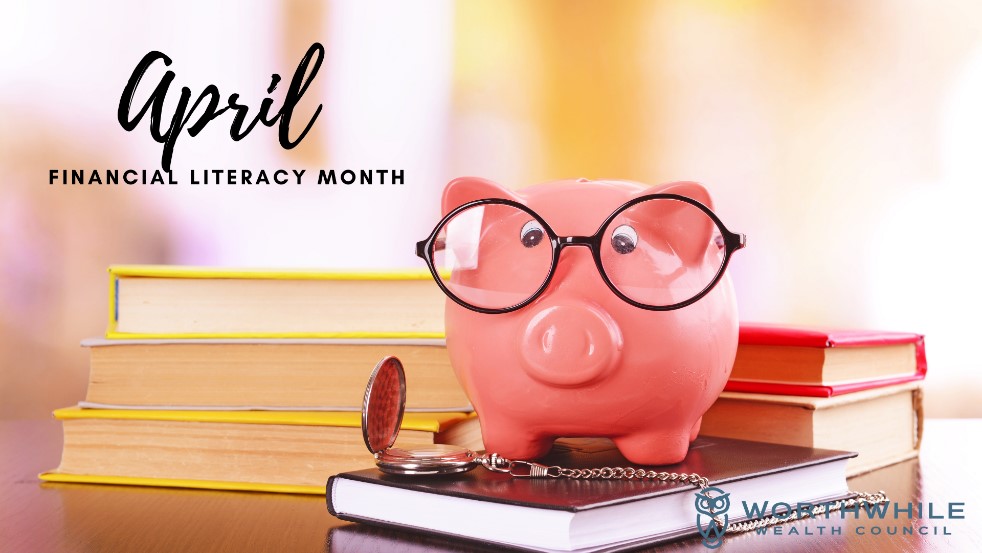April is Financial Literacy Month! Financial literacy is being empowered to make good financial choices, and it’s something that every adult needs.
The majority of people run into financial challenges many times throughout their life. Some might be out of your control, but financial planning can equip you to handle whatever comes your way. According to the Financial Literacy and Education Commission, there are five key components of financial literacy: earn, spend, save and invest, borrow, and protect. Let’s dive into each of these components.
Earn: Understanding your paycheck
Before you can start spending, saving, and investing, you need to know how much money you make. If you make the same amount each month, this part is pretty easy. Take a good look at your paycheck to identify your gross and net income, and note any other deductions. If your income is variable, taking an average for that month can work.
Once you’ve determined your monthly net income, you’re ready to spend (responsibly!) with a personal budget.
Spend: Creating a personal budget
A personal budget is just a plan for how you want to spend your money, but it’s also the most useful tool for achieving your financial goals. To create a monthly personal budget, you’ll need to track your spending over the course of one month, and then break everything down into categories. Examine your spending a see what categories you need to make changes in and where you can save! There are many sample budgeting sheets online and apps to help with this part
Save: Determining your financial goals
Your financial goals will depend on your unique situation, but should include:
- Saving for an emergency fund. Money in a designated to prevent prevent a financial setback from overtaking your life.
- Planning for retirement. The earlier you start saving for retirement, the better. Most financial planners suggest setting aside at least 10% of your take-home pay each month for retirement savings in a 401(k), IRA, or both.
- Saving for a big purchase. This could be a car, house, school or any other large purchase you are planning.
- Paying off personal debts. Paying off debt quickly can save thousands!
Borrow: Credit cards, loans, and your credit score
Even if you’re a diligent saver, at some point you may have to borrow money to cover a large expense like a home or car. Borrowing isn’t necessarily a bad thing—as long as you know how to compare loans and maintain a healthy credit score.
Debt can get out of hand but if used it responsibly it can be a useful tool and sometimes necessary. Just keep a good eye on what you are spending and that you are paying off the debt quickly and consistently.
Protect: Preventing fraud and buying insurance
Once you’ve set yourself up with a solid budget and investment strategy, it’s important to protect the money that you’ve made. This means regularly reviewing your bank accounts and credit card statements for mistakes or suspicious activity; keeping documents and passwords secure to prevent scams and identity theft; and buying the right kind of insurance to protect yourself in the event of an emergency.
How to Assess Your Financial Literacy
Are you active in the five components of financial literacy? If not there a plethora of resources available to learn! One of the best ways to increase your financial literacy is speaking with a Certified Financial Planner™. Here at WWC our financial Planners are always excited and ready to educate and work with you to achieve your financial goals!
This commentary was originally posted by Bungalow, February 1, 2022
Source: https://bungalow.com/articles/the-five-key-components-of-financial-literacy
**Disclaimer: This material has been prepared for informational purposes only, and is not intended to provide, and should not be relied on for, tax, legal or accounting advice. You should consult your own tax, legal and accounting advisors before engaging in any transaction.


